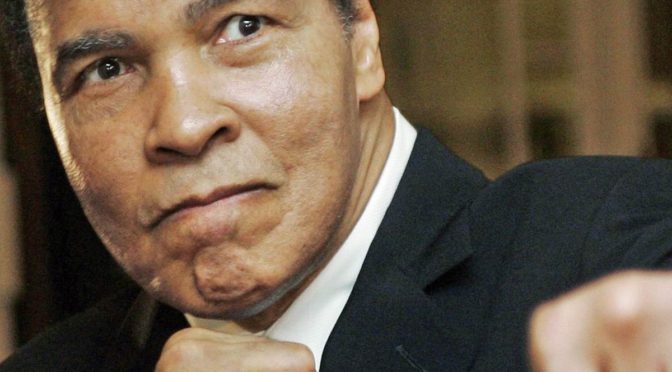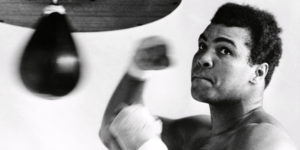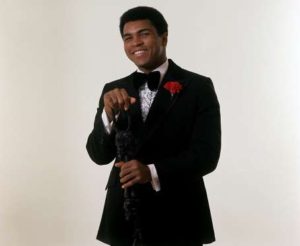While we are wringing our hands over the shuttering of our government and other matters involving the president of the United States and our Congress . . . we now have some news to cheer.
Louisville, Ky., airport authority officials have voted to rename their city’s international airport after a man who became arguably the most famous person on Earth.
Welcome to Louisville Muhammad Ali International Airport.
The three-time heavyweight boxing champion would have turned 77 years of age. On the eve of that birthday, the Louisville Regional Airport Authority board announced the name change. It honors the memory of Ali, who died in 2016 at the age of 74.
This news cheers me greatly.
“Muhammad Ali belonged to the world, but he had only one hometown, and fortunately, that is our great city of Louisville,” said Mayor Greg Fischer.
Man, oh man. What a world we live in.
Back when he was still known as Cassius Marcellus Clay, the man who grew to become a living legend faced outright discrimination simply because of the color of his skin. His fists led him to great heights after winning an Olympic gold medal in boxing. He won the heavyweight title in 1964, scoring a huge upset over Sonny Liston. Then he had his title stripped from him after he refused to be drafted into the Army in protest of the Vietnam War. He was banned from boxing for more than three years. Ali came back and then won his title again in 1974 by knocking out George Foreman. He lost it once more, then regained it with a victory over Leon Spinks.
He spoke brashly as a young man. Then he became a voice for the dispossessed as an older man. Ali fought for his rights as a U.S. citizen. Then, while stricken with Parkinson’s disease after his retirement from boxing, The Champ became an advocate for those suffering from debilitating illness.
Now his hometown’s international airport will carry The Greatest’s name. It makes me want to buy a plane ticket simply to fly into Louisville Muhammad Ali International Airport.


